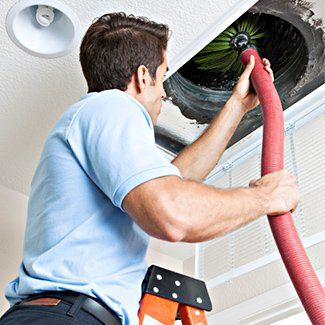When it comes to creating a pleasant living environment, understanding HVAC is vital. If you're a homeowner wanting to make upgrades or an individual interested in furthering your knowledge about heating and cooling systems, this guide will help you steer through the often complicated world of HVAC. From choosing the right system to knowing when to fix or replace your existing setup, we will provide you with the information you need to budget properly for your HVAC needs.
Your HVAC system holds a significant role in your home’s overall efficiency and comfort, but numerous people are not aware of the costs associated with installation, maintenance, and repairs. With this knowledge, you can make informed decisions that not only enhance your indoor comfort but also help you save on energy bills. We'll also investigate common HVAC problems and provide solutions, advice for improving energy efficiency, and guidance on maintaining good indoor air quality. By the end of this article, you'll be better equipped to understand the costs involved and how to make the most of your HVAC investment.
Comprehending Heating, Ventilation, and Air Conditioning
HVAC stands for heating, air circulation, and air conditioning. It is a crucial element of home and industrial buildings, providing a comfortable environment and preserving indoor air quality. These systems control thermal comfort and humidity while offering fresh air through efficient filtering and air exchange. They are available in multiple types, each crafted to fulfill the particular thermoregulatory demands of the area they support.
At its fundamental level, an heating and cooling system consists of a boiler or thermal pump for warmth, an air conditioning unit for temperature reduction, and a system of ducts or pipes that distribute air throughout the structure. The system also includes a thermostat for regulating temperature and filters to filter out particles and irritants from the air. Understanding how each part functions in unison is important for optimal operation and upkeep.
The efficiency of an HVAC system depends significantly on proper configuration and routine maintenance. Residents and businesses must select the right system based on the size and specific needs of their environment. Additionally, routine evaluations and maintenance help prevent common issues and confirm the system performs at optimal efficiency, ultimately reducing costs on energy expenditures and prolonging the duration of the equipment.
HVAC Upkeep and Effectiveness
Consistent maintenance is crucial for keeping your HVAC system running efficiently. This includes tasks such as changing air filters, washing coils, and checking refrigerant levels. Neglecting these maintenance tasks can cause decreased system efficiency, higher energy bills, and even unexpected breakdowns. Homeowners should plan professional inspections at least once a year to ensure all components are functioning correctly and to identify any potential issues before they escalate.
Effectiveness is not just about routine maintenance; it also involves optimizing your HVAC system's performance. Consider using programmable thermostats to set temperatures based on your routine, lowering energy consumption when you're not home. Sealing navigate to these guys and fixing any air leaks can significantly enhance efficiency by allowing your system to operate less while keeping comfort levels. Small changes in your HVAC usage habits can result in substantial savings over time.
Furthermore, upgrading to high-efficiency models can provide both short-term and long-term benefits. Latest systems are built with innovative technology that improves efficiency ratings, which translates to lower energy costs. If your system is more than a decade old, it may be time to assess your options. Investing in an energy-efficient HVAC system not only supports reduce your environmental impact but can also boost your home's value and give you with better indoor air quality.

Advanced HVAC Systems and Innovations
The HVAC field is continuously evolving, with progress in tech leading to more effective heating and cooling solutions. One of the most exciting developments is the introduction of smart HVAC technologies. air conditioner can be managed from a distance through cell phone apps, enabling homeowners to monitor and adjust their heating and cooling controls from anywhere. This not only improves comfort but also adds to electricity savings by helping users to optimize their setup based on live data and occupancy patterns.
Another major innovation is the incorporation of clean energy into within HVAC systems. Solar-powered HVAC solutions, for example, capitalize on solar energy to lessen dependence on traditional power suppliers, resulting in lower energy bills and a diminished carbon emissions. Additionally, earth-sourced heating and cooling technologies are increasing in popularity for their effectiveness and ecological benefits. By utilizing the earth’s stable underground temperature, these systems can ensure pleasant indoor environments while consuming less energy than traditional systems.
As HVAC innovations continue to develop, indoor air quality continues to be a top priority for homeowners and companies alike. Modern systems are now fitted with advanced filtration and ventilation solutions that significantly enhance indoor air quality. The best air purifiers and automated sensors recognize and react to contaminants and allergens, providing fresher air while encouraging improved health and comfort. These advancements not only make HVAC technologies more efficient but also improve the overall residential and office environment.
